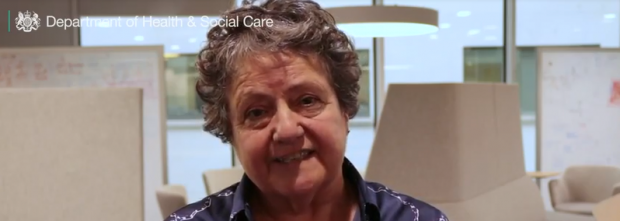New strengths based practice framework launches

In January 2017, I was very pleased to host a roundtable event with the Social Care Institute for Excellence (SCIE). We had joined forces to explore what strengths-based social work means for practitioners, carers and people using services.
The event brought together professionals, researchers and experts by experience to define the challenges of working in strengths-based ways and share examples of good practice most effective in overcoming them.
One clearly defined objective to come out of this meeting of minds was the development and publication of a practice framework and guidance. That objective has now been met.
It became clear to me, early on in my social work career, that social workers must understand and respect the distinction between theory, research and evidence and their role as professional experts.

Whilst practice evidence and research are vital tools to inform sometimes complex judgements, imagination, creativity and curiosity are also needed to make sure a person’s wishes are respected and their life goals remain at the heart of any decision making process.
In other words, it’s about finding the balance between professional engagement and the holistic, co-productive approach we espouse to keep individuals at the centre of all care and support decisions.
In this way, we are not dictating a person’s future, but instead working alongside them as trusted advisors, presenting and facilitating options with one ultimate goal: to support them and their families to make independent decisions about the lives they want to lead. A strengths and asset based approach is, I believe, the best way to achieve this.
This is about working with individuals’ emotional and physical resources and establishing ways to mitigate any deficits. Indeed, the now published framework and guidance reveals how they should be encouraged to describe the impact their 'disability, illness, or situation' has on their lives.
Why? Because no solution will be effective based on professional knowledge alone. It must come from the person and their lived experience and focus on what matters to them. The authors of this excellent framework have included some value statements we should all keep in mind when applying our professional judgement:
“My social work is driven by being curious and not taking things at face value, but finding out about past life and history of the person to inform the way I work with them.”
“I am driven by a strong sense of advocacy and upholding the human rights of the individual.”
“I pride myself in ensuring that I have the right information based in evidence to inform my interventions and decision-making… I have corroborated that what I have heard or told is a fact.”
These reaffirm why social work is such a wonderful, evolving and compassionate profession. We never assume, presume or pass judgement on anyone.
Our role is to identify, co-produce and facilitate solutions so that individuals can become the best version of themselves. It’s what we all want for ourselves. Helping others achieve the same is at the core of our practice and this strengths based social work practice framework is now published in that spirit – essential reading for modern, progressive social workers everywhere.
1 comment
Comment by Songül Bekir posted on
I have read through the KcVETS model and it seems an effective way to bring strengths based practice into the Care Act 2014 assessment process.